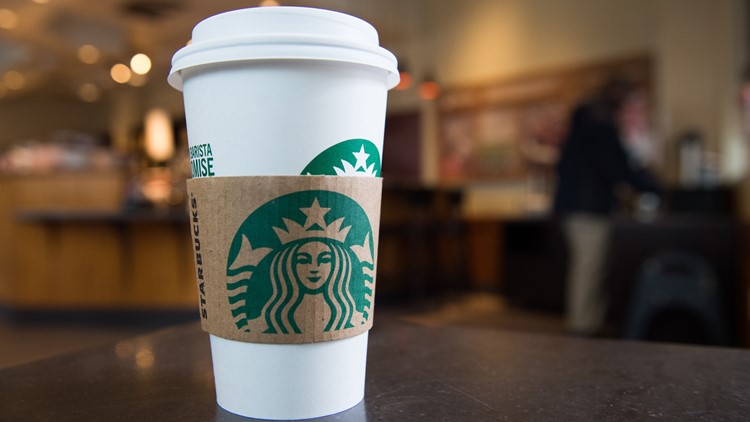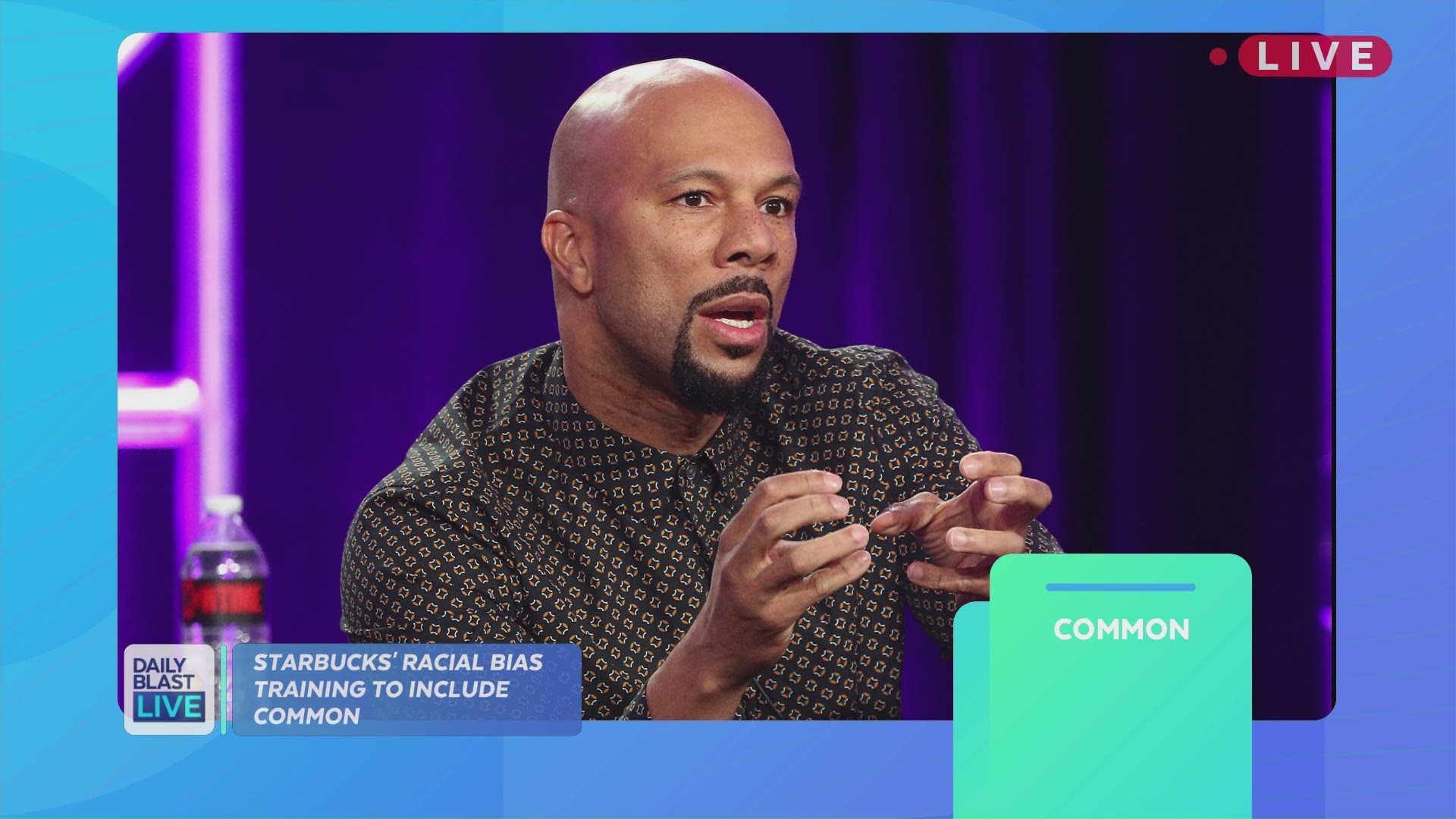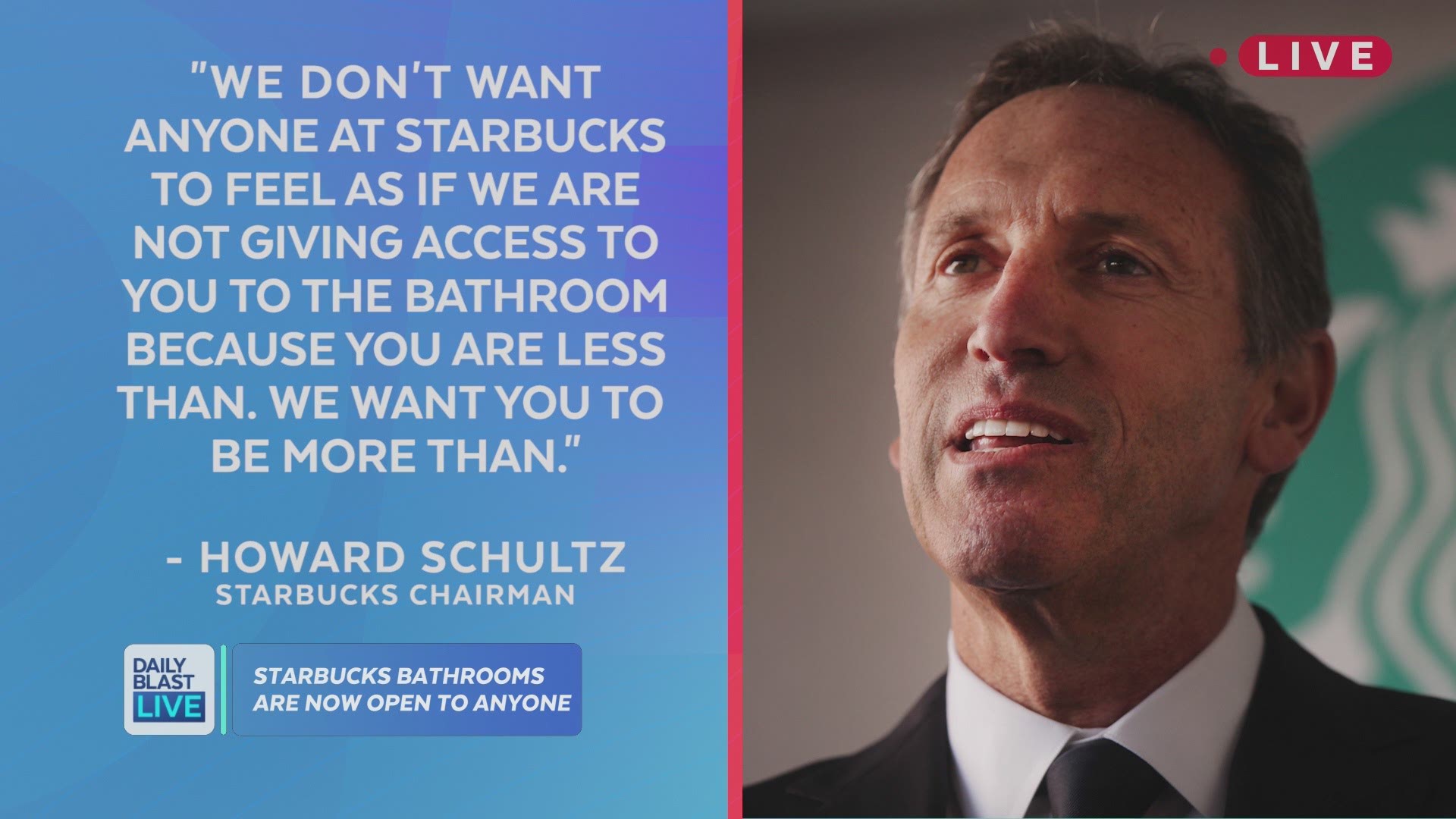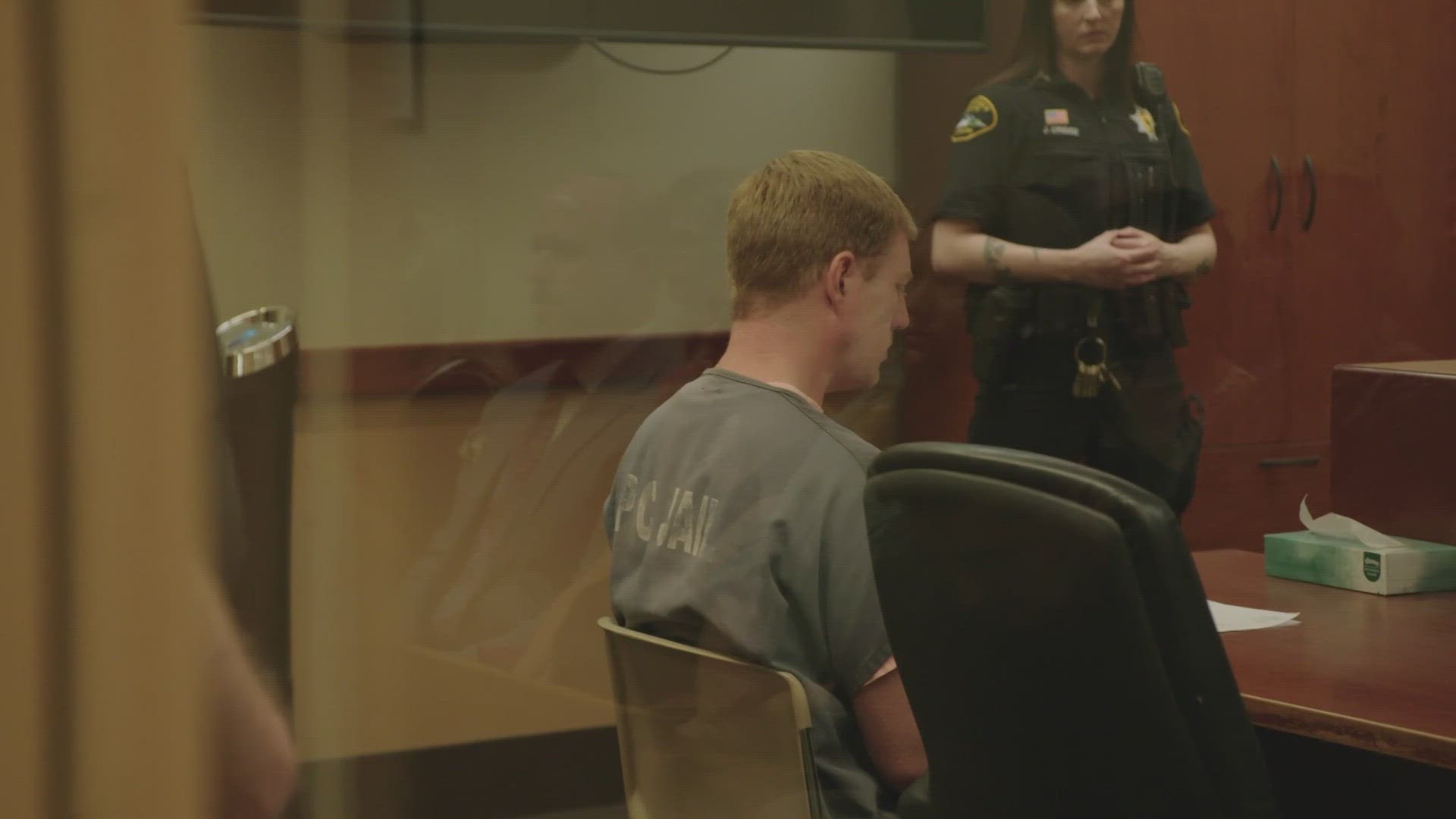Starbucks closed more than 8,000 stores in the U.S. on Tuesday afternoon to conduct employee training "to address implicit bias" and "prevent discrimination" after two black men were arrested at a Philadelphia store in April.
The training will cost Starbucks $12 million in lost profit, but some experts say it could be beneficial to the overall brand.
Melanie Cunningham is Tacoma's Peace Laureate who has organized racial bias training in Pierce County.
"Unconscious bias shows up in really subtle ways. You got a 50/50 chance that people are going to show up to training and they're going to be excited to receive," Cunningham said.
Cunningham said the success of the training will depend in part on the employees’ attitude toward the training.
“I’m hoping that while Starbucks leadership goes into this training that they are very focused on the long haul. I’m wondering what the accountability measures are going to be because we’re not going to be able to figure it out in one day," she said.
Starbucks is not the first company to try to train away implicit bias, a term used to describe unconscious prejudice. From multinational corporations to police departments, organizations have tried to tackle the problem by hiring consultants to lead diversity or unconscious-bias training. But the science behind the approach is debated. A 2016 meta-analysis of 494 studies on the topic found little evidence that reducing implicit bias affects behavior.
Starbucks' training will be open to up to 180,000 employees between its stores and headquarters. Workers will be paid while they are attending.
While $12 million is a relatively small impact for Starbucks, which posted net income of $660 million in the quarter ended April 1, the chain is hoping the investment pays off when it comes to customer care, boosting the brand's long-term value.
"You want to patronize a business that treats its employees and customers well. Starbucks has gone much further than many other companies in this regards," said John Zolidis, president of Quo Vadis Capital. "The sensitivity training, together with everything else Starbucks is doing, should be beneficial to the brand."
Arthur Alford said he supports the company's decision. He previously worked from Starbucks, and followed the arrest of two men in a Philadelphia store.
"The first thing that struck me, especially as a black man in America, I though OK ... is this something that happens on a regular basis, that you kind of get used to," he said.
"I was saddened by it, and was really hoping they'd step up and do the right thing," he said. "They did."
Alexandra Flynn said bias is a larger problem than coffee.
"I'm racially biased, everyone is racially biased," she said. "It happens, you can't ignore that fact."
She added -- she's been on the receiving end of that bias.
"As a law student, I get it all the time," she said. "'Wow, you go to law school,' well why do I not look like I'm a good enough student compared to my white counterparts?"
Alford joins her in hoping the message spread beyond the coffee chain's walls.
"I think people will try and emulate what they're doing, and say you know what, if it works for them, let me try it with my business, go forward, see if I can make a difference with the community," he said.
Starbucks may minimize the impact by having chosen a lightly-trafficked time of day, the afternoon after the lunch rush, and following a long holiday weekend to shutter its coffee shops.
"White people are bad at admitting implicit bias and therefore good at denying the realities of racism," says Robin DiAngelo, who conducts workshops on race, including implicit bias, and recently provided Starbucks with feedback on training support and follow-up.
"I don’t believe it’s humanly possible to be free of bias," DiAngelo said. But she does believe we can work on it.
Eight in 10 blacks say racism is a big problem in American society, and about half of whites say the same, according to the Pew Research Center. However, 55% of whites believe whites are discriminated against in America today, according to a poll from Harvard, NPR and the Robert Wood Johnson Foundation.
Addressing racism makes many white people feel anger, fear and guilt, which leads to denial, minimization and defensiveness, DiAngelo says, even though racism inevitably touches everyone.
"No one, no one can escape the messages of white superiority," she said, adding that the reflex to shut down conversations about racism helps keep it alive.
Since the incident in Philadelphia, Starbucks has apologized to the victims. Starbucks created a new policy which allows people who don't make purchases to use restrooms.
The stores will open for business on Wednesday. In a note to employees, the company said it views the training as a first step, not a solution.
USA TODAY spoke with DiAngelo about racism and her forthcoming book, White Fragility: Why It's So Hard for White People to Talk About Racism:
(Questions were edited for clarity, answers were edited for length.)
You say the mainstream definition of racism is problematic. Why?
"[The mainstream definition of] a racist is always an individual who consciously (must be conscious) does not like people based on race, and intentionally (must be intentional) seeks to hurt them. As long as that is our definition of a racist, virtually every white person is exempt from the system we are in.
I think that reductive definition is the root of virtually all white defensiveness on this topic, because if I think that’s what a racist is, and you suggest that anything I’ve said or done is racist, you’ve just put me in the category of immoral person. And now I’m going to have to defend my moral character."
How should we define racism?
"A group’s collective bias backed by legal authority and institutional control."
Is everyone racist?
"While everyone has racial bias, I reserve the word 'racist' to describe the bias that white people have — our collective bias is backed by institutional power."
'White privilege' has become a commonly used term, but what about white people who've suffered hardships?
"It’s not that white people don’t face barriers. What I’m saying is you have not faced this one [racism]. And not facing this one has helped you navigate your other ones."
"This was a struggle with my students [who said], 'Well, I’m queer. I’m Jewish. I have a disability. I’m not privileged.' ... I think [they need to hear it] from somebody who shared their identity. ... I have moved people forward who were raised poor or working class and could not own racial privilege by sharing how I came to understand mine. … I did it by sharing my own experience as someone who grew up in poverty. While I have struggled with a deep sense of class shame and the message that I was 'less than,' I still always knew that I was white and that made me 'better than' poor people of color. In fact, being white has helped me escape poverty. No one looks at me and assumes I don’t belong in academia, but my colleagues of color can’t say the same. The question that white people need to ask ourselves is not if we were shaped by the forces of racism, but how."
You say white progressives 'cause the most daily damage to people of color.' Why?
"White progressives create the daily climate that people of color must function within. We are the co-workers and friends who people of color so often cannot share their perspectives and experiences with, or talk to us about our problematic racial assumptions and patterns, because we are so confident that we don't have any problematic racial assumptions and patterns.
We are the ones most likely to be in people of color's lives in some way, and yet most white progressives, despite our confidence that we are free of racism, do not understand how race shapes our own lives. ... That obliviousness and ignorance is not benign or innocent, and when coupled with complacency, certitude and arrogance — 'I already know all this!' — creates a rather miserable daily experience for people of color."
How does a white person being defensive affect a person of color?
"I often ask people of color in my workshops the simple question: How often have you tried to give white people feedback on our inevitable and often unaware racism and have that go well for you? They laugh. They roll their eyes. Never. Rarely. We’re so difficult about this. And that, of course, functions beautifully to kind of police people of color into not giving us feedback, because they risk even more punishment with our defensiveness, our hurt feelings, our minimization, our explaining away. It’s like this loop that keeps everyone in their place, but of course, ultimately who does that benefit? Trust me, people of color bring home way more racism every single day than they bother talking to us about."
What do you think of the statement Starbucks CEO Kevin Johnson released after the incident saying 'our store manager never intended for these men to be arrested'?
"Who does it serve to focus on intent rather than impact? That always serves the transgressor. And while it’s nice to know that the intentions were not to harm, it’s fairly irrelevant to the outcome. When we focus on our intentions we’re inadvertently saying ... that I should be absolved of the impact because I didn’t mean to have that impact. ... We live in a culture that promotes this idea that it’s all about intentions. I don’t know that you could have come up with a more effective way to protect racism."
After the Civil Rights Movement, you say people began to equate racism with 'bad people.' How does that play out now?
"The default of our society is the reproduction of racial inequality. I mean, that’s what it does, that’s what it’s been doing for hundreds of years. ... By every measure, people of color and black and indigenous people, in particular, are at the bottom. ... And all this system really requires to keep on keeping on is for white people to just be really nice. You know? Just be really nice, smile at your co-workers of color, go to lunch on occasion and do nothing else. And I’m not saying don’t be nice, but niceness is not courageous, it’s not strategic, it will not get racism on the table [to address it] and it won’t keep it on the table when everyone wants it off."
Where do we go from here?
"Nobody really knows what it would look like to have a society free of domination and bias. ... I think the goal is to try to identify your biases, try to uproot them, challenge them, get new information, build relationships with people you’ve been socialized to see as not valuable to be in relationships with. These are not small tasks and our efforts need to be lifelong and ongoing."





